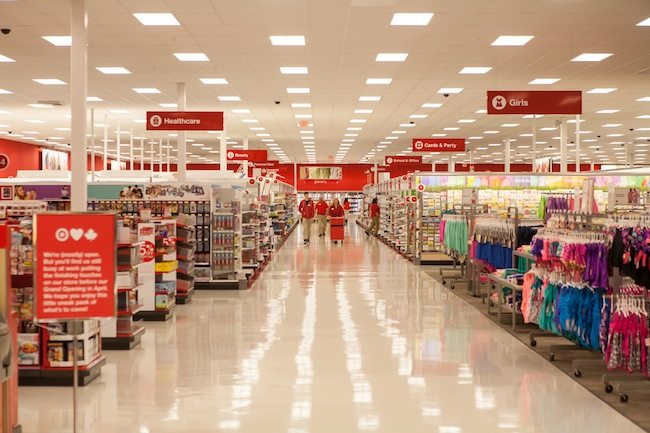For Target, keeping it fresh is about more than the produce aisle – the company purposely changes its store layouts on a regular basis.
“To remain relevant to its guests over time, Target continually reinvents its stores, including layout, presentation and merchandise assortment, to create an engaging shopping experience,” according to the company website. It’s a strategy that clearly works for Target, but it could probably work even better if regular shoppers didn’t need to reorient themselves when they enter a store where merchandise is on the move.
Target stores are a great fit for indoor positioning systems, and the company is already trialing the technology. Indoor positioning systems (IPS) use beacons to locate customers within a store. Digital indoor maps can help shoppers navigate when they use the store’s mobile app. IPS enables the app to direct customers to specific items, if they tell the app what they want to find. IPS can also be used to drive in-app advertising based on a customer’s current location within a store.
Target’s indoor positioning technology comes from Acuity, which makes indoor and outdoor lighting, as well as the Atrius internet of things platform. Visual light communication (VLC) uses LED lighting to locate customers or products with location accuracy of 4 inches, according to Acuity.
Acuity compares VLC to a flashlight sending Morse code so quickly that the human eye perceives only a steady stream of light. LED lights pulse on and off too rapidly for us to see, and VLC uses those pulses to communicate with smartphones.
According to Acuity, VLC can locate a smartphone within one tenth of a second, and that position is updated as often as five times per second. But if the smartphone is inside a purse or pocket, the accuracy is greatly diminished. For that reason, Acuity uses Bluetooth as a backup for its IPS technology. Bluetooth has less location accuracy than VLC, but it does not require line of sight.
Lighting giants GE and Philips are also marketing indoor positioning systems that use VLC. The Philips system has been deployed in Dubai by a grocery store chain called aswaaq.
Target has yet to announce integration of IPS into its mobile apps. The company has two different apps for shoppers: the Target app for iOS and Android, as well as another app for both operating systems that is called Cartwheel and focuses primarily on coupons.

